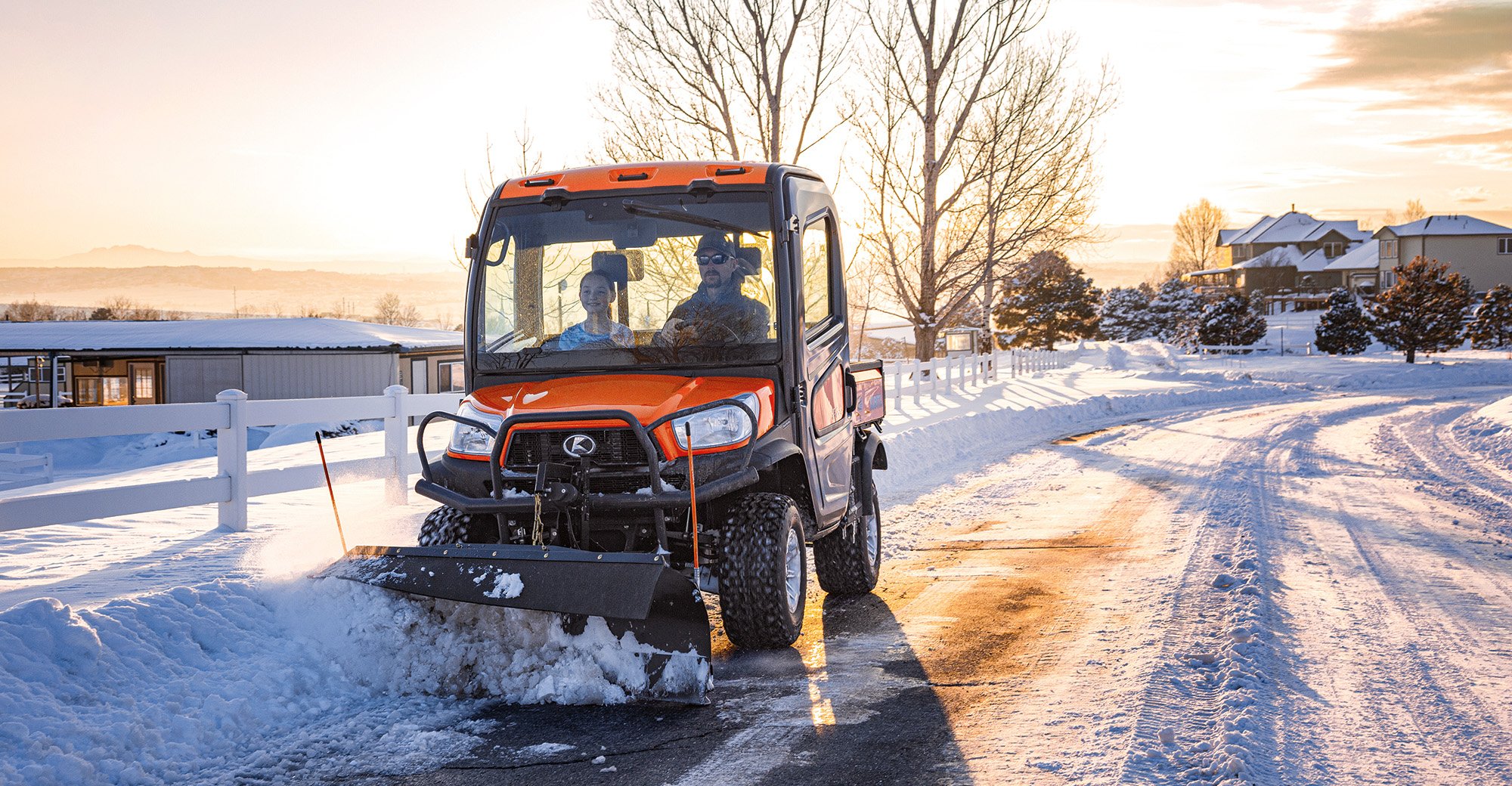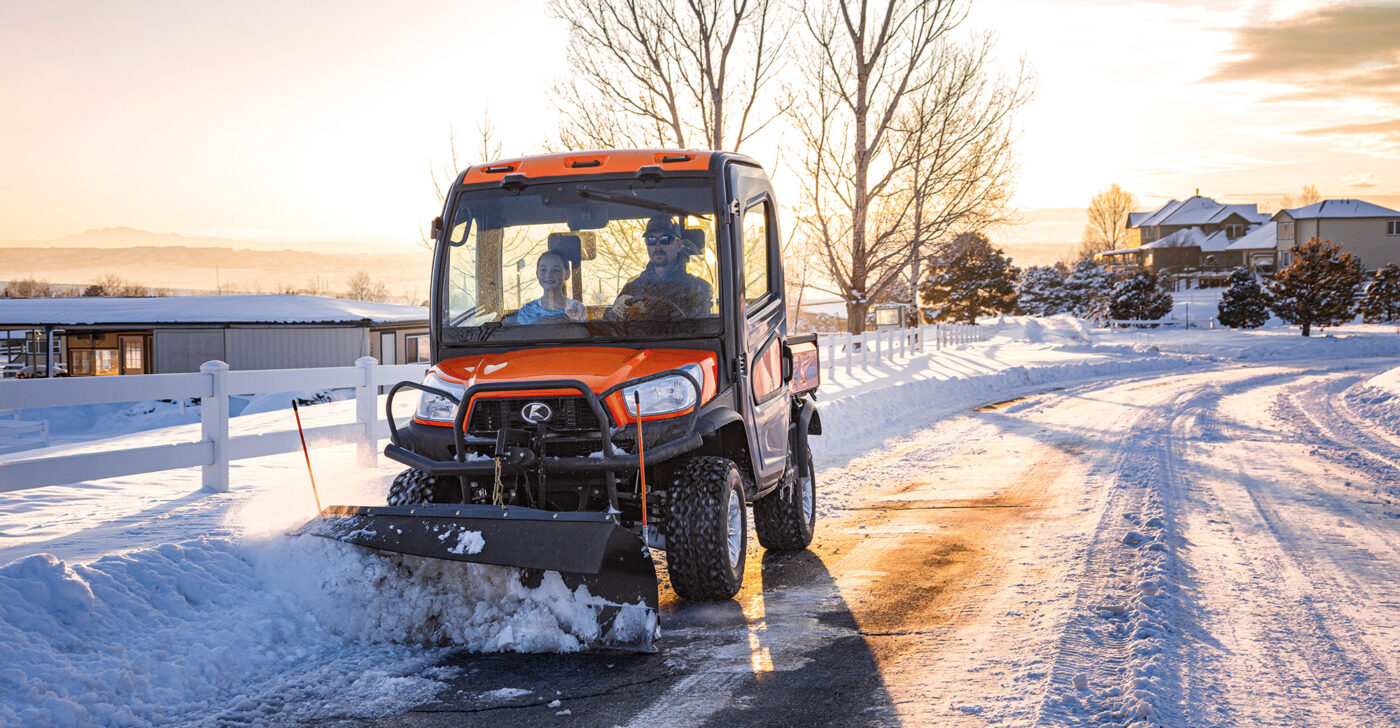Uncategorized
Cold Temps, Hot Tips: A Winter Maintenance Guide for Your Equipment

Cold Temps, Hot Tips: A Winter Maintenance Guide for Your Equipment
10/19/2023
While the colder temperatures may bring some work to a halt, there are many jobs that will roll on through the depths of winter. Proper winter maintenance for your equipment is critical to ensuring a smooth transition into seasonal work.
We’ve compiled some of the best tips from Kubota product managers for navigating the winter months and getting the most out of your equipment. As always, be sure to consult your equipment’s operator’s manual in addition to this guide for model-specific recommendations and routine maintenance instructions. Download the myKubota app to have your operator’s manual accessible from anywhere.
- Utilize the season for repairs – If there is a season that presents itself with natural downtime, it’s winter. Use this time to fully inspect and repair your equipment. If you’re in need of parts, your local Kubota dealer or shop.kubotausa.com has you covered with Kubota Genuine Parts.
- Inspect before using your machine – Daily inspections are critical to identify areas of normal wear and tear that could lead to serious or expensive repairs if left unchecked. Examine fluid hoses regularly for cracks – cold temperatures may put added stress on major machine components, including hoses which may crack in very cold temperatures. Other areas to inspect include oil and grease lubrication, coolant, fuel levels, battery function, the undercarriage, and the tires or tracks.
- Keep it clean – Clean the undercarriage regularly – excess snow, salt, and ice can get stuck to the machine causing performance and mobility issues.
- Warm it up – Allow the equipment to properly warm up. Refer to your owner’s manual to determine appropriate warming time before operations. Adding a block heater to the machine will help decrease warm up time and more efficiently heat the cab if appropriate for your model.
- Use the proper fuel and fluids – As seasons change and the temperature gets colder, make sure you have the proper fuel and additives available to prevent fuel gelling. The same applies to engine oil and hydraulic oil replacements with suitable viscosities for cold weather. Consult your owner’s manual or local dealer for model-specific recommendations for fuel and oil types, especially if you will be storing your machine for a long period of time.
- Store indoors – Storing the equipment inside a dry shed or building can reduce the winter strain on the equipment. When storing indoors, it is important that the building is not too warm to prevent any accumulated condensation from freezing and causing unintended performance issues. Oftentimes, it is better to store frequently used equipment in an unheated building to minimize condensation and temperature shock. If you must store your equipment outdoors, make sure to cover it with a waterproof tarp. Also make sure you have cleaned your equipment thoroughly to prevent mud and moisture from freezing to the equipment.
- Protect your battery – In many cases, removing the battery from your equipment before long-term storage can help retain battery life for future machine use. Once removed, store in a dry spot indoors until your next use. You may also benefit from using a battery maintainer to extend battery life. Please consult your operator manual for proper battery storage.

